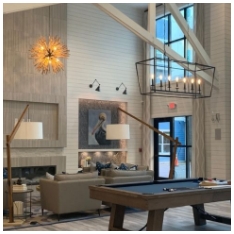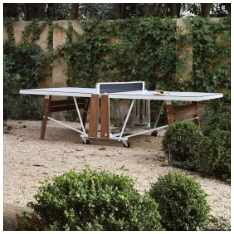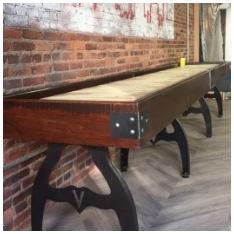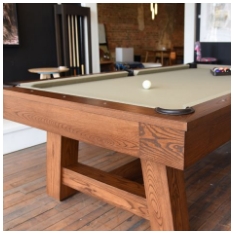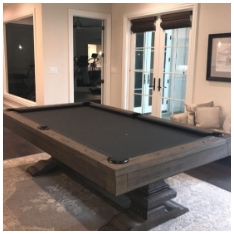Choosing the right pool table for your space can enhance your game experience and add a touch of style to your room. Whether you’re setting up a game room, a man cave, or a commercial venue, understanding the factors involved in selecting the perfect pool table is crucial. In this two-part series, we will guide you through the essential considerations and help you make an informed decision.
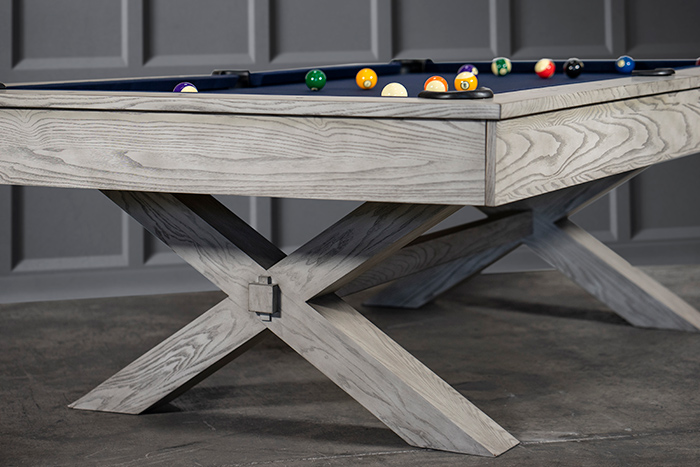
Understanding Pool Table Dimensions
Standard Pool Table Sizes
When selecting a pool table, the first thing to consider is its size. Pool tables come in various dimensions, typically ranging from 7 to 9 feet in length. The most common sizes are:
- 7-Foot Tables: Ideal for smaller spaces and home use. They are often referred to as bar tables or pub tables.
- 8-Foot Tables: A popular choice for home game rooms. They offer a good balance between playability and space.
- 9-Foot Tables: Standard for professional play. These are suitable for larger spaces and serious players.
Measuring Your Space
Before purchasing a pool table, measure your space carefully. Leave enough room around the table for players to move comfortably and take shots. A general guideline is to have at least 5 feet of clearance around all sides of the table. For example, if you have a 7-foot table, your room should be at least 12 x 16 feet.
Choosing the Right Pool Table Material
Slate vs. MDF
The material of the pool table plays a significant role in its performance and durability. The two most common materials are:
- Slate: Slate is the traditional material used for high-quality pool tables. It provides a perfectly flat playing surface, which is essential for a consistent game. Slate tables are usually more expensive but are worth the investment for serious players.
- MDF (Medium-Density Fiberboard): MDF tables are more affordable and are commonly used in home settings. While they are less durable than slate, they can still offer a good playing experience for casual players.
Frame and Legs
The frame and legs of the pool table should be sturdy enough to support the weight of the table and withstand regular use. Solid wood or metal frames are the most durable options. Ensure that the legs are adjustable if you need to level the table on uneven flooring.
Pool Table Design and Style
Traditional vs. Modern
Pool tables come in various styles, from traditional to modern. The design you choose should complement the décor of your space. Traditional tables often feature intricate carvings and classic finishes, while modern tables have sleek lines and minimalist designs.
Customization Options
Many pool table manufacturers offer customization options, including different finishes, cloth colors, and even personalized cues. If you have a specific vision for your game room, consider a custom table to match your aesthetic preferences.
Conclusion
Selecting the right pool table involves considering dimensions, materials, and design. By understanding these factors, you can find a table that fits your space and meets your playing needs. where we will delve into additional considerations such as accessories, maintenance, and budget.

